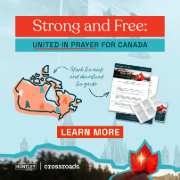The Cost of Beauty
- Details
- Category: Faith & Arts
- Published: Monday, 21 August 2023 11:24
 Is there a cost to all things that are beautiful? Explore this question and more in part 3 of a multi-part blog series by 9th Hour Theatre Company about transcendent beauty.
Is there a cost to all things that are beautiful? Explore this question and more in part 3 of a multi-part blog series by 9th Hour Theatre Company about transcendent beauty.
'Beauty' that has the potential to save the world may possibly require something of us beyond it's mere appreciation. It may summon us to look outwardly, beyond ourselves, to others, to see 'The Other' as also possessing the Divine spark. This world saving 'beauty' might be messy, and it might in fact be dangerous to engage in, as it may leave us altered from when we first encountered it, or it may require some sort of sacrifice. This kind of 'beauty' might cost us. It could be inconvenient, painful, risky, and even "unsafe".
In C.S. Lewis' masterpiece The Lion, the Witch and the Wardrobe Mr. Beaver is telling the Pevensie children about the Great Lion, and how He's "on the move" and that hope is returning to Narnia after living so long under the White Witch's winter reign of tyranny. One of the four children inquires about this mysterious lion.
SUSAN: Is he quite safe? I shall feel rather nervous about meeting a lion. MR. BEAVER: Safe? Don’t you hear what Mrs. Beaver tells you? Who said anything about safe? ‘Course he isn’t safe. But he’s good. He’s the King, I tell you.
'Beauty' that will save the world could be dangerous. This 'beauty' could be risky. This 'beauty' isn't safe, but it's good.
Perhaps there's a cost to the kind of 'beauty' that could save the world. Who bears that cost? Going back to the story about a witch and a lion and a wardrobe, we see in the character of Edmund a lonely and frightened child, miserable, uncooperative, and easily manipulated by the White Witch with sweets and other promises of power, privileges, and status. Upon hearing about Aslan, the other children respond quite differently than Edmund as written in Joseph Robinette's stage adaptation presented by 9th Hour in 2018:
PETER: The very name makes me feel brave and adventurous. SUSAN: The name sounds like a delightful strain of music to me. LUCY: It warms me up - makes me feel like summer. EDMUND: It gives me a bad feeling - like some mysterious horror.
Shortly after in the scene, Edmund sneaks off and leaves his siblings to report back to the White Witch, who isn't too overjoyed to hear that Aslan might be back. Later in the story, once Edmund has met up again with his siblings, she tries to use the Deep Magic of Narnia against Aslan in dealing with him.
WITCH: You know that every traitor belongs to me - and that for every treachery, I have a right to kill... And so, that human creature is mine. His life is forfeit to me. His blood is my property... unless the Law is obeyed, all Narnia will be overturned and perish in fire and water. ASLAN: It is true, I do not deny it. SUSAN: Oh, Aslan. Can't we do something about the Deep Magic? Isn't there something you can work against it? ASLAN: Not against the Emperor's magic. But I will talk to the Witch.
Aslan goes on to make an agreement with the witch to sacrifice himself on the ancient Stone Table instead of Edmund in order to pay the cost embedded in the Law of the Deep Magic. Aslan further brings about reconciliation between Edmund and his siblings, and they forgive him for what he's done. Forgiveness is a beautiful thing. Aslan's act of generous love for the traitor Edmund is the catalyst and ultimate transforming agent in Edmund's life who goes on to be called "King Edmund the Just" in the land of Narnia. Edmund is instrumental in "saving the world" of Narnia from the White Witch's reign and bringing justice for all Narnians. But there was a cost. The 'beauty' that saved Narnia didn't come about automatically, but through pain.
Is it possible that in order to truly experience the 'beauty' that would save the world, something else may be required of us: suffering? Musician Bob Dylan writes "Behind every beautiful thing is some kind of pain." Perhaps our understanding of this kind of deep life changing 'beauty' would only come with a genuine experience of suffering. Returning once again to Lewis, who understood the Problem of Pain all too well, says:
"Try to exclude the possibility of suffering which the order of nature and the existence of free-wills involve, and you find that you have excluded life itself.”
In fact, he's even said that pain is God's megaphone. Certainly too, Buddhist philosophies and teachings have much to say about the role of suffering in life.
Another character comes to mind from The Chronicles of Narnia who went on to "save the world" after going through his own pain and an encounter with 'Beauty'. Eustace Scrubb from The Voyage of the Dawn Treader is a real nasty and rude boy that no one seems to like much, which was fine by him, as he didn't seem to think much of them either. Upon accidentally (or perhaps not) ending up in Narnia, he grumbles and complains and gets on the last nerves of most Narnians, leaving him lonely and full of contempt for them. On an island, he stumbles upon a vast treasure, thought to be a dragon's. Lewis tells us that he falls asleep on the dragon's hoard with "greedy, dragonish thoughts" in his heart. He wakes up and slowly realizes he isn't alone in the cave and that there's a dragon there with him, only to discover that the dragon is in fact him, and that he's in a lot of pain.
Learning to live as a dragon and in his pain, Eustace realizes that he's been a dragon all along, “that he was a monster and cut off from the whole human race.” It's observed that his character vastly improves in being a dragon instead of a boy. He learns how to be friends with his cousins Edmund and Lucy, instead of blaming them and the others for his problems. “He began to wonder if he himself had been such a nice person as he always supposed."
After time passes and growing accustomed to being a dragon, Eustace has a mysterious encounter with a lion who rips his dragon skin off of him one layer at a time, described as an excruciatingly painful process, only to come out of it a changed person, full of love and understanding for others, full of bravery and honour. It is Edmund in fact that tells him that the lion he encountered was Aslan, Edmund being no doubt familiar with the life altering power of such an encounter. Eustace becomes instrumental in joining with the others to "save the world" of Narnia during the rest of the story. But there was a cost.
"Forgiveness is a beautiful thing."
The kind of 'beauty' or joy one might experience in suffering, or as a result of some great pain or loss, is a challenging 'beauty'. It is also a uniquely powerful one, with the potential to transform our own suffering into an instrument of growth and healing for ourselves, and ultimately for others. This kind of 'beauty' rips us apart inside and out, shakes us to the core, and can result in a magnificently frightening Death to self that can lead to new Life for many others. On the other side of our pain can come such 'beauty' the world has never seen. Out of the horror of our forsaken place can come about a redemptive 'beauty' that illuminates our being, makes us more whole, brings Light and Hope and Joy to others, creates opportunities for growth and community, and when eventually brought to full fruition, saves the world.
(This is Part 3 of a multi-part blog series about 'beauty'., written by 9th Hour Theatre Company. For more Blog posts relating to faith and spirituality intersecting with arts and culture, visit 9thhour.ca/blog)













